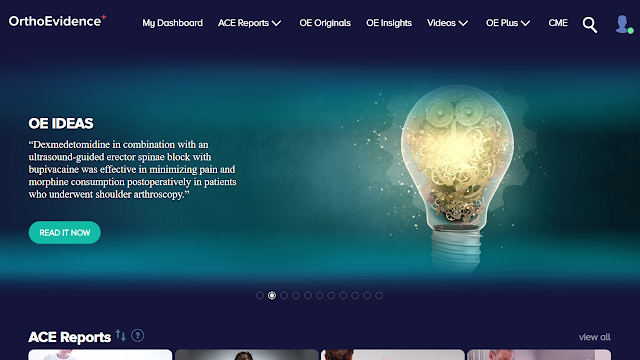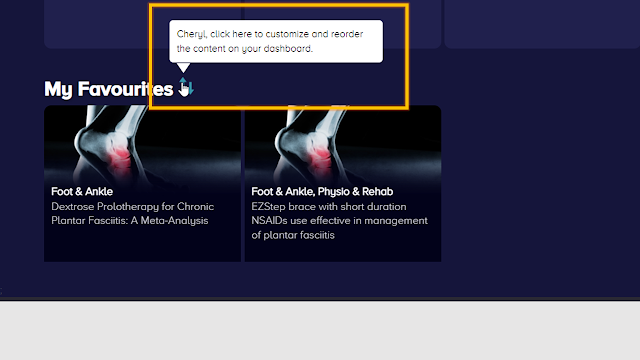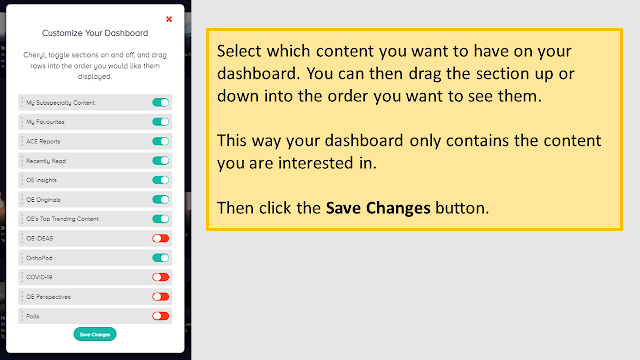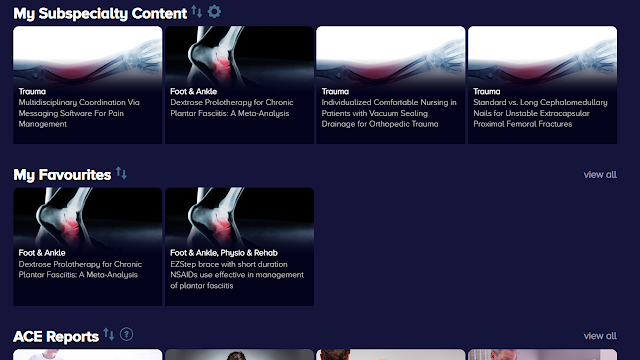OrthoEvidence allows orthopaedic and physiotherapy specialist staff to stay up-to-date with the latest evidence, in an easy to read format. You can get expert summaries of the best research.
Get all the latest content in one place on your dashboard.
Too much? Too general? Then just re-arrange your dashboard to get what you want.
Your dashboard is presented after you log in to OrthoEvidence.
You will see the latest published content at the top.
You can then page down to see the other sections. For example
Ace Reports, Favourites or Recently Read articles. See an example below.
You can re-order the different sections or even remove a section so the ones you are most interested in are presented to you. Simply click on the arrows next to the section title to get the Customize Your Dashboard options.
From the selection screen toggle the sections off or on. You can then drag the sections up or down to give the order you want to see. Click Save Changes when you are happy with your selection.
Now when you view your dashboard you’ll only see the sections
you want to see and you’ll see your most important sections at the top. Here is
my dashboard:
Note that the most recent publications always appear at the
top.
This resource is not available via OpenAthens login. We have
a limited number of accounts available. Please contact the eresources librarian
at c.kent@keele.ac.uk for instructions to obtain your login account.
Please be
aware that OrthoEvidence is available to members of Royal College of Surgeons
of England separately.





Comments
Post a Comment